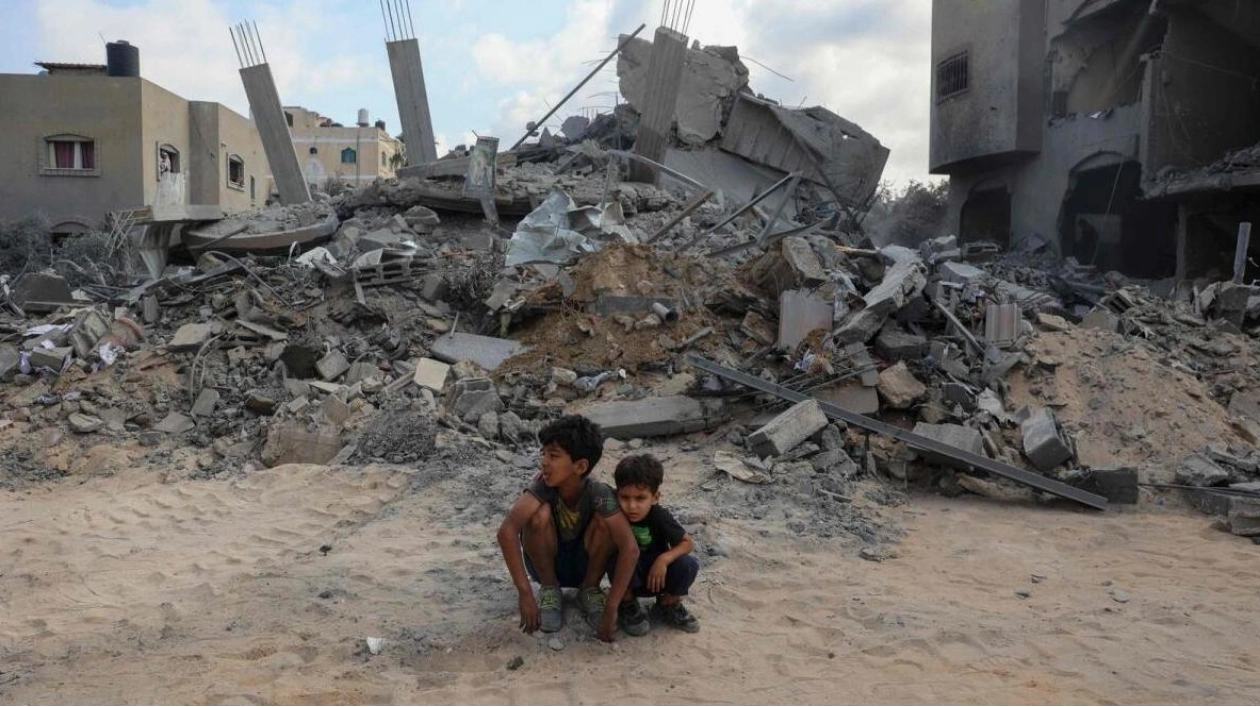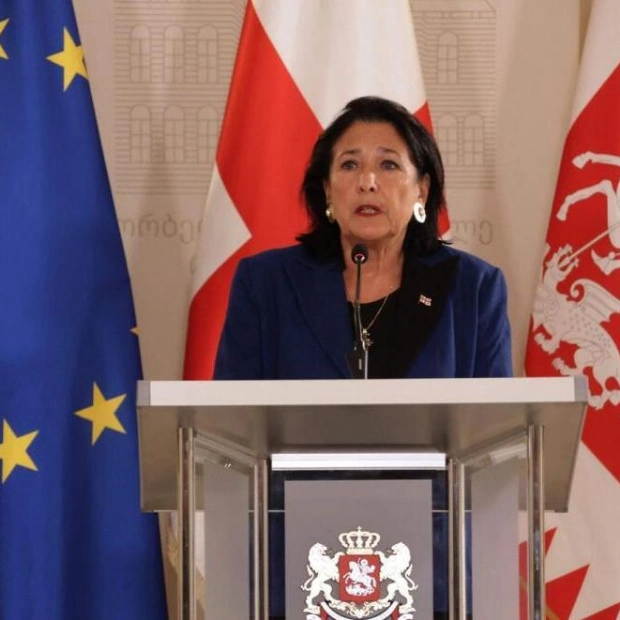For numerous Palestinians living in the UAE, the allure of their homeland remains potent, often compelling them to return despite the myriad challenges that life in Gaza entails. For one family, the choice to abandon their comfortable existence in the UAE and relocate to Gaza was deeply influenced by a profound sense of identity and belonging. However, their aspiration to construct a life in their native land transformed into a harrowing ordeal amid the relentless October 7 war, now approaching its first anniversary.
The family's odyssey (name withheld for safety reasons) commenced when they migrated from the UAE to Gaza post-marriage. They harbored a fervent wish to rear their children within their homeland, surrounded by their community. 'We desired to nurture them in their country and ensure they were where they truly belong,' the mother elucidated. Having been born and raised in the UAE, she regarded it as her second home and acknowledged the comparative ease of life there vis-à-vis Gaza. 'Upon relocating to Gaza, we were cognizant that we would confront hardships due to the occupation and the siege imposed on the region, but it was undoubtedly the correct decision.'
Their decision was met with astonishment and apprehension from kin and acquaintances, who questioned the rationale behind choosing to reside in what has been characterized as an 'open-air prison'. Nevertheless, the family's dedication to their land was unequivocal. 'They respected our desire to be on our land,' she added. When the October 7 war erupted, the extent of the impending upheaval was not immediately evident. 'We presumed this would endure for a couple of months, akin to previous wars we've experienced,' she reminisced. 'However, this time is markedly different; it is a genocide. We've forfeited our home, land, enterprises, and family.'
For the family still ensconced in Gaza, the ferocity and duration of the ongoing war have inflicted unimaginable tribulations upon their daily existence. 'We lack a life. That is all I can articulate,' she stated, delineating their current plight in Gaza. 'We reside in a tent; securing food is a monumental challenge due to shortages, and we are deprived of access to our own bathroom, a fundamental human right.' The displacement and privation have effaced any semblance of a conventional life, rendering survival their paramount concern.
One of the most distressing episodes for the family was evacuating their home, a sanctuary they had meticulously crafted over 21 years. 'It is not merely a house; it is a home. We forged memories there; our daughter's wedding transpired there,' she recounted. The loss of their home transcends the physical; it signifies the erasure of a lifetime's worth of memories and aspirations.
The psychological toll of the war has been profound. 'We have all lost hope. We yearn for death to conclude this ordeal because, given the war's trajectory, it appears unlikely to terminate soon,' she conveyed. The family's mental well-being has deteriorated to the extent that the prospect of not awakening to confront another day of suffering seems more tolerable. 'Each night, I gather my children in my lap, fervently hoping we do not wake up, and simply perish together,' she divulged.
Although they have garnered some psychological and financial aid from relatives in the UAE, the struggle persists intensely. 'My sisters, currently residing in the UAE, are exerting their utmost; they furnish financial assistance and psychological support. They are endeavoring their best...yet they are oblivious to the tribulations we endure,' she added.
'We merit to live' When queried about what she wishes more individuals comprehended about life in Gaza amidst the war, her response was succinct yet potent: 'We merit to live. We deserve the rudimentary necessities of safety, sustenance, and privacy.' Despite the dire circumstances, the family derives some fortitude from their faith. 'God is with us; he will aid us,' she affirmed. It is this faith that sustains them in a period when hope is an elusive commodity.
The mother's sisters unanimously concur that the family's narrative is a poignant testament to the human toll of war. It accentuates the profound repercussions on individuals who, in their quest for identity and belonging, find themselves ensnared in a conflict that appears to offer no end in sight.






